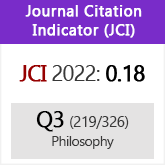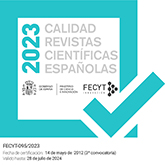Interdisciplinary Research in Moral and Political Philosophy: Rhetoric, Practices, and Effects
About the dialogical character of research in moral and political philosophy there is little doubt. Both disciplines have grown together historically, developing complementary and divergent approaches. From an epistemological point of view, both ways of practising moral and political philosophy have been and remain justifiable. They operate in each case on different methodological assumptions and are oriented towards different intellectual and practical aims. The questions of interdisciplinarity has been raised, however, as regards the independent opening up of moral philosophy and political philosophy to debates around research approaches, methods, techniques, and goals from other disciplines in the humanities, the social sciences, and other branches of knowledge.
This ever-expanding crossing of frontiers has a clear impact on the production and dissemination of knowledge. It is indeed a path with potential to achieve innovative outcomes, although not every interdisciplinary strategy guarantees them, nor does any strategy presented as interdisciplinary become son in practice. Yet, to no lesser extent crossing disciplinary frontiers has effects on how research outcomes necessarily produced by the contributions from different disciplines are interpreted and communicated. Added to this is the effect that interdisciplinary research has onm the diffusion and dissemination of knowledge by linking previously separate scientific communities.
By way of illustration of these practices, it can be mentioned, for example, that economic theory played a prominent role in the moral and political philosophy debates of the second half of the eighteenth century (from David Hume’s argument in defence of international trade to Adam Smith’s justification of the role of the state in the economy). In other words, an improvement of knowledge in economic theory was understood as an improvement of knowledge in moral philosophy, in the same way that moral philosophy had contributed to revise some traditional understandings about the balance between national interests and foreign trade. Similarly, the debates in the second half of the twentieth century on methodological renewal in the history of political thought have been determining in the practice of political philosophy. Advances in knowledge in either discipline are to a large extent interchangeable.
Drawing on these assumptions, this monographic issue will pay attention to three dimensions of interdisciplinary research in moral and political philosophy:
(1) First, to the rhetoric of interdisciplinarity: to what extent to is it is used as a mere play on words to praise the value of that to which it is applied, or indicates, instead, a specific form of research or reflection on the methodological criteria of a given discipline. This semantic ambivalence in the way research in moral and political philosophy is presented as interdisciplinary can be documented in numerous publications, outcomes, and approaches. This monographic issue will pay attention to rhetorical and argumentative strategies that usually go unnoticed to assess the extent to which they affect the development of both disciplines.
(2) Second, to specific practices that illustrate interdisciplinary academic work. Although not always presented as such, there are many cases of interdisciplinary research in moral and political philosophy. It is indeed a growing production describing a considerable academic trajectory. Academic specialization has been and is a driving force for interdisciplinary innovation, since although it provides an in-depth knowledge in these areas, it reveals the need to balance this specialization with an interdisciplinary approach that encourages collaboration and integration. It makes sense to recognize the existence of different degrees of methodological and epistemological openness to other disciplines to appreciate the distinct forms of interdisciplinary cooperation observable in practice.
(3) Third, to the effects of those practices on scientific production and academic career. This is a less visible, but no less significant aspect of interdisciplinary research. It is especially relevant to scientific production and academic careers in moral and political philosophy because of its position at the crossroads between the humanities and the social sciences and, moreover, because of its openness to other branches of knowledge. As long as scientific production guides academic promotion, and vice versa, promotion cannot be understood without linking it to results. In this sense, it can be seen how interdisciplinarity strengthens in many cases scientific innovation, therefore boosting academic careers. In other instances, instead, it results in penalization, since in practice it translates into a lack of recognition of the relevance of outcomes by the academic community and competent institutions.
Consequently, on these three dimensions of rhetoric, practices, and effects of interdisciplinary research in moral and political philosophy, this call for papers is open until 31 August 2024. Those papers that do not comply with the established rules (being longer than twenty pages, 1.5 line spacing in Times 12, with a brief summary and an abstract together with keywords in Spanish and English, as well as a title in English and an anonymized version for review, including the ORCID code) and are submitted without the corresponding authorship declaration will be dismissed without being forwarded to review.










